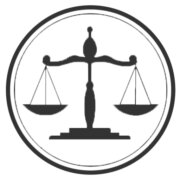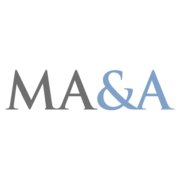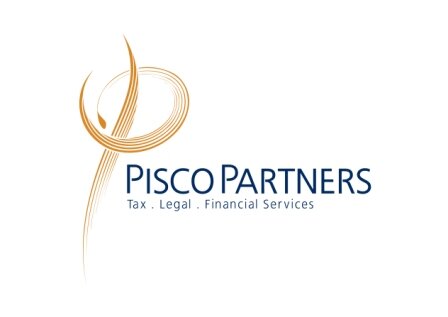Best Sanctions & Export Controls Lawyers in Ta' Xbiex
Share your needs with us, get contacted by law firms.
Free. Takes 2 min.
List of the best lawyers in Ta' Xbiex, Malta
About Sanctions & Export Controls Law in Ta' Xbiex, Malta
Sanctions and export controls are a vital part of Malta's legal framework, especially due to its role as a member of the European Union. Located in the central Mediterranean, Ta' Xbiex is a prominent hub for international business, shipping, and financial services. This setting makes the understanding and adherence to sanctions and export control laws crucial for businesses and individuals operating locally. These laws regulate the transfer of goods, technology, and services across borders and ensure that Malta fulfills its international obligations, especially in relation to embargoed countries, controlled goods, and sensitive technologies. Compliance is enforced by both national Maltese authorities and European Union mechanisms.
Why You May Need a Lawyer
Several common scenarios make legal advice necessary in the field of sanctions and export controls in Ta' Xbiex:
- Your business is importing or exporting goods or technology that may be subject to Maltese, European Union, United Nations, or US sanctions.
- Clients or counterparties come from countries or sectors targeted by international sanctions regimes.
- You operate in shipping, fintech, or other regulated industries where dual-use goods or services are frequently handled.
- You have received a request from authorities for information or have been notified of an investigation or audit related to trade compliance or sanctions.
- You are unsure if your business processes align with current export control laws or sanctions compliance requirements.
In each of these cases, a qualified lawyer can help interpret the relevant legal framework, assess risk, and provide guidance on compliance and best practices to help avoid penalties or reputational damage.
Local Laws Overview
Sanctions and export controls in Ta' Xbiex are governed primarily by Maltese national legislation, European Union regulations, and applicable United Nations Security Council resolutions. Key laws and regulations include:
- EU Sanctions Regulations: These are directly applicable in Malta and cover both restrictive measures (sanctions) and export controls covering countries, individuals, and sectors.
- National Interest (Enabling Powers) Act (Cap 365): Provides the Maltese government authority to implement sanctions and restrictive measures.
- Export Control Regulations: Regulate the movement of dual-use items, military goods, and strategic technologies in and out of Malta.
- Customs and Excise Laws: Oversee border controls and the licensing requirements for sensitive goods and technologies.
- Implementation of United Nations Security Council Resolutions: Maltese authorities are obligated to enforce UN-mandated sanctions.
Businesses and individuals in Ta' Xbiex must be mindful that violations can lead to criminal and civil penalties, including fines, imprisonment, and business restrictions.
Frequently Asked Questions
What are sanctions and export controls?
Sanctions are restrictive measures imposed by national or international bodies targeting countries, entities, or individuals. Export controls refer to regulations that restrict or license the transfer of specific goods, services, or technologies across borders.
Do EU regulations apply directly in Ta' Xbiex, Malta?
Yes, as Malta is an EU member state, all EU sanctions and export controls apply directly without needing additional local legislation.
What happens if I unknowingly violate sanctions laws?
Ignorance of the law is not a defense. Penalties may include administrative fines, criminal charges, confiscation of goods, and reputational harm. Legal advice is recommended immediately.
Are any industries in Ta' Xbiex particularly affected by these rules?
Shipping, financial services, iGaming, and technology companies in Ta' Xbiex are frequently subject to sanctions and export controls due to the international nature of their business.
What is a dual-use item?
A dual-use item is a product or technology that can serve both civilian and military purposes and is subject to specific export controls.
Can an individual be held liable for breaches by their company?
Yes, company directors and officers can be held personally liable for compliance failures related to sanctions and export controls.
How do I determine if a license is required for my export?
The need for a license is determined by the type of goods, destination country, and end-user. Legal advice or consultation with authorities is essential.
What should I do if my customer is on a sanctions list?
You should immediately halt any business dealings and seek specialist legal advice to assess risk and your obligations under the law.
How are sanctions and export controls enforced in Malta?
Enforcement is handled by national authorities such as the Malta Customs Department, Commissioner for Revenue, and the Financial Intelligence Analysis Unit, often in coordination with EU agencies.
Where can I find more information about the laws and my responsibilities?
Official resources are provided by Maltese authorities, the European Commission, and international organizations. A lawyer with experience in the field is also an essential resource.
Additional Resources
For further information, you may consider consulting:
- Maltese Customs Department - Provides guidelines and forms for import and export licensing.
- Maltese Ministry for Foreign and European Affairs - Updates on international sanctions and national implementation.
- Financial Intelligence Analysis Unit (FIAU) - Compliance resources, especially for financial institutions.
- European Commission Directorate-General for Trade - Official EU laws and sanctions lists.
- Legal practitioners and advisory firms specializing in Maltese trade and international business law.
Next Steps
If you believe you may be impacted by sanctions or export controls, or if you are planning to engage in cross-border business from Ta' Xbiex, consult a legal professional specializing in this field. Start by gathering details about your transactions, clients, and business operations. Contact a local law firm or compliance advisor for a confidential assessment of your specific circumstances. It is always better to clarify your obligations and put compliance measures in place before any issue arises. Timely legal advice can protect your business and ensure that you operate safely within the law.
Lawzana helps you find the best lawyers and law firms in Ta' Xbiex through a curated and pre-screened list of qualified legal professionals. Our platform offers rankings and detailed profiles of attorneys and law firms, allowing you to compare based on practice areas, including Sanctions & Export Controls, experience, and client feedback.
Each profile includes a description of the firm's areas of practice, client reviews, team members and partners, year of establishment, spoken languages, office locations, contact information, social media presence, and any published articles or resources. Most firms on our platform speak English and are experienced in both local and international legal matters.
Get a quote from top-rated law firms in Ta' Xbiex, Malta — quickly, securely, and without unnecessary hassle.
Disclaimer:
The information provided on this page is for general informational purposes only and does not constitute legal advice. While we strive to ensure the accuracy and relevance of the content, legal information may change over time, and interpretations of the law can vary. You should always consult with a qualified legal professional for advice specific to your situation.
We disclaim all liability for actions taken or not taken based on the content of this page. If you believe any information is incorrect or outdated, please contact us, and we will review and update it where appropriate.











